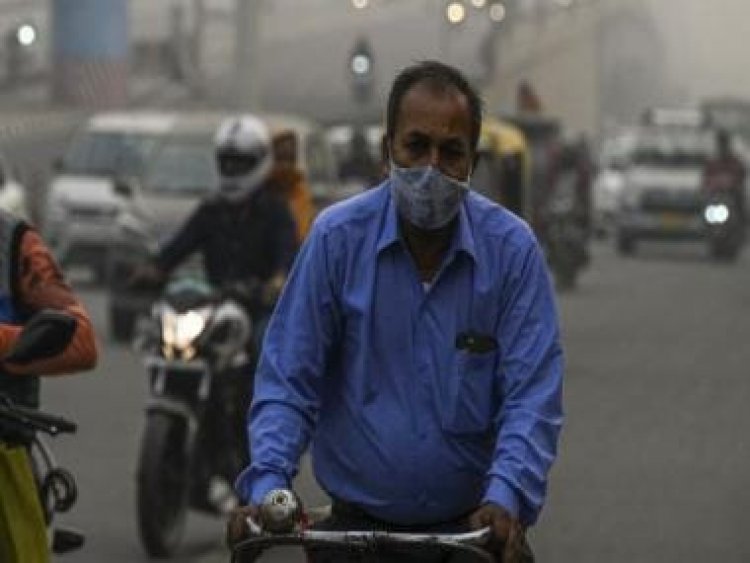How India can mitigate climate change impact
How India can mitigate climate change impact

Human ambition has increased significantly over the past few decades, which has also led to a surge in development. However, we started overusing our natural resources rather than utilizing the environment to our advantage, and developing technology and systems that may benefit both humans and nature. The result was climate change, melting glaciers, sea-level rise, natural disasters, urban heat islands, pollution, health disorders, and a lot more. When our wildlife and nature seemed to fare far better when humans were forced to stay indoors, it became clear that the environment was crying out for help.
With development activities picking up once again, it’s important to keep in mind that we’re already fighting climate change and global warming. Our choices, actions and behaviour should be based on that premise so that we can inch closer to reducing the impact of climate change.
What can you do? A lot! While you might think that climate change policies and strategies are the work of the government and political bodies, this is a reminder that we are going through the repercussions of climate change as a country. It is each individual’s responsibility to do their bit in making the fight against climate change easier and more effective. Healing the environment starts in the kitchen, in our bedrooms, at work, and even in the garage.
To prevent further decline in our environmental health, we need to be wary of every small action that can contribute to temperature rise, sea-level rise, and pollution. We need to reduce emissions of GHGs, especially carbon dioxide and devise eco-friendly substitutes to products that have a high carbon footprint. In fact, knowing your carbon footprint is an excellent way to make small and easy changes at home and office. To underline the importance of this issue, organizations can encourage activities that cap emissions and reward employees when they achieve a low carbon footprint. This could be an incentive to reduce polluting behaviors and to invest in cleaner energy choices.
A few changes in our traveling habits can also help in the reduction of greenhouse gas emissions. This includes driving efficiently, routine tyre maintenance, limiting the use of ACs, carpooling when possible, using a bicycle, and flying less if possible. While we cannot completely eliminate travel from our daily lives, we can choose travel methods that have a smaller negative impact on the environment.
Increasing energy efficiency and promoting renewable energy is also crucial to reduce pressure on our natural resources. So many people in India still lack access to electricity and rely on solid fuels for cooking such as coal, wood, and charcoal which causes harmful indoor air pollution. Opting for energy-efficient appliances, using LEDs and using renewable energy is a great way to not only mitigate climate change but also let businesses know that the demand for renewable energy sources is on rise.
It might also be a great shift to consume less meat or replace ordinary meat with meat that is produced responsibly. Increased greenhouse gas emissions from factory farming can have a big impact on climate change. Finding techniques to produce less trash is also crucial. Plan your meals, creatively repurpose leftovers, freeze food you won't use, and engage in some at-home composting. A wonderful strategy to produce less waste is to recycle more and reuse old jars, furniture, bottles, and other containers.
Small changes at home can go a long way in the fight against climate change. Making cleaning products at home using bio enzymes is also a great way to discourage harsh chemicals used in common cleaning products. For instance, jaggery, orange peels, and water come together to form an excellent cleaning solution for almost all surfaces.
If we were to adopt a few things that we were taught as children in our current lives, the environment would benefit a great deal. For instance, switching off appliances when not in use, carrying a water bottle from home, not wasting water, and segregating waste are some great habits to pass on to our future generation as well.
India is one of the most vulnerable countries to climate change, and will be severely affected with an increase in natural calamities such as floods, tsunamis, droughts, and heat waves. Our country has already taken a few progressive steps such as the target of clean energy and reduction in emissions by 22 per cent. In fact, extensive plantation efforts, water body rejuvenation, and buying local and organic produce are already being encouraged and implemented. However, regardless of the policies and strategies implemented by the government, our environment will heal only if ‘care for nature’ comes naturally to us.
Imagine if mindful shopping is all that we know, if we don’t hesitate in using second-hand goods, if we carry cloth bags from home while shopping-imagine if we all develop an environment-friendly mindset. We would need no rules and regulations to protect the environment because we would understand the need and importance of man-environment cohabitation. We are equally accountable for slowing down climate change as the government is for creating effective climate change policies.
Let's learn from our mistakes and stop further environmental exploitation. If we all work together to improve our relationship with the environment, India can serve as a model for sustainability to the rest of the world.
The author is CEO, Grow-Trees.com. Views are personal.
Read all the Latest News, Trending News, Cricket News, Bollywood News,
India News and Entertainment News here. Follow us on Facebook, Twitter and Instagram.
What's Your Reaction?

























































